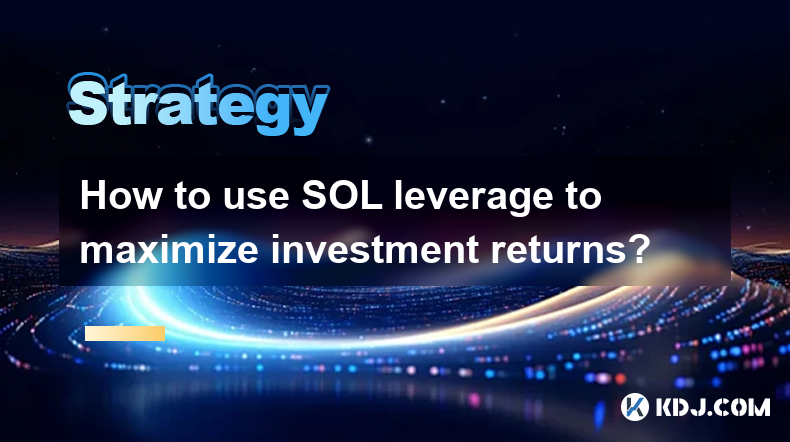-
 Bitcoin
Bitcoin $84,993.8786
0.34% -
 Ethereum
Ethereum $1,599.9353
1.27% -
 Tether USDt
Tether USDt $0.9999
-0.01% -
 XRP
XRP $2.0813
0.78% -
 BNB
BNB $592.4105
0.82% -
 Solana
Solana $138.1937
3.17% -
 USDC
USDC $1.0000
0.00% -
 Dogecoin
Dogecoin $0.1589
2.71% -
 TRON
TRON $0.2413
-1.55% -
 Cardano
Cardano $0.6307
2.60% -
 UNUS SED LEO
UNUS SED LEO $9.3881
1.71% -
 Chainlink
Chainlink $12.8366
1.65% -
 Avalanche
Avalanche $19.2740
1.26% -
 Stellar
Stellar $0.2445
1.24% -
 Toncoin
Toncoin $2.9868
-0.07% -
 Shiba Inu
Shiba Inu $0.0...01221
3.10% -
 Hedera
Hedera $0.1669
0.87% -
 Sui
Sui $2.1351
1.39% -
 Bitcoin Cash
Bitcoin Cash $336.8750
2.70% -
 Hyperliquid
Hyperliquid $18.0804
6.57% -
 Polkadot
Polkadot $3.7246
1.15% -
 Litecoin
Litecoin $76.4144
1.52% -
 Dai
Dai $0.9999
0.00% -
 Bitget Token
Bitget Token $4.4597
2.23% -
 Ethena USDe
Ethena USDe $0.9992
0.00% -
 Pi
Pi $0.6437
5.71% -
 Monero
Monero $212.9449
-1.50% -
 Uniswap
Uniswap $5.2448
1.29% -
 Pepe
Pepe $0.0...07289
2.88% -
 OKB
OKB $50.8316
2.01%
How to use SOL leverage to maximize investment returns?
Leveraged Solana (SOL) trading offers high-return potential but carries substantial risk due to SOL's volatility. Choose a reputable exchange, manage risk with stop-loss orders and diversification, and utilize technical analysis to inform trading decisions.
Mar 24, 2025 at 11:08 am

Key Points:
- Understanding Solana's (SOL) volatility and its impact on leveraged trading.
- Identifying reputable cryptocurrency exchanges offering SOL leverage trading.
- Exploring different leverage options and their associated risks.
- Implementing effective risk management strategies for leveraged SOL trading.
- Utilizing technical analysis and market research to inform trading decisions.
- Considering alternative strategies like leveraged yield farming for passive income.
How to Use SOL Leverage to Maximize Investment Returns?
Leverage trading, while offering the potential for amplified returns, significantly increases risk. In the context of Solana (SOL), a highly volatile cryptocurrency, understanding this risk is paramount before employing leverage. The potential for substantial profits is matched by the potential for equally substantial losses. Therefore, a thorough understanding of the market and risk management techniques is essential.
Understanding Solana's Volatility
Solana, known for its speed and scalability, also exhibits significant price fluctuations. These price swings can be dramatic, presenting both opportunities and dangers for leveraged traders. A small price movement against your position can lead to significant losses, quickly eroding your capital. Thorough market research and understanding of the factors driving SOL's price are crucial.
Choosing a Reputable Exchange
Selecting a secure and reliable cryptocurrency exchange is the first step. Not all exchanges offer leveraged trading, and those that do vary in their offerings, fees, and security measures. Research is crucial to find an exchange with a good reputation, robust security protocols, and a user-friendly interface. Look for exchanges with strong regulatory compliance and a history of reliable service.
Leverage Options and Their Risks
Exchanges typically offer various leverage ratios, allowing you to control a larger position than your initial capital allows. Higher leverage magnifies both profits and losses. A 10x leverage means a 10% price movement results in a 100% change in your account balance. Understanding the implications of different leverage ratios is vital for effective risk management.
Implementing Effective Risk Management
Risk management is crucial in leveraged trading. Never invest more than you can afford to lose. Utilize stop-loss orders to automatically limit potential losses if the market moves against your position. Diversification across multiple assets can also help mitigate risk. Regularly monitor your positions and adjust your strategy as needed.
Technical Analysis and Market Research
Informed trading decisions are key to success. Technical analysis, using charts and indicators, can help identify potential entry and exit points. Fundamental analysis, focusing on factors like network adoption and development, provides a broader perspective on SOL's long-term prospects. Combining both approaches can lead to more effective trading strategies.
Leveraged Yield Farming
Beyond direct leveraged trading, consider leveraged yield farming. This involves lending or staking your SOL on decentralized finance (DeFi) platforms, often with leverage. While this can generate passive income, it carries significant risks, particularly concerning smart contract vulnerabilities and impermanent loss. Thorough research of the platform and its underlying mechanisms is essential.
Understanding Margin Calls
Margin calls occur when the value of your position falls below the exchange's required margin level. This forces you to deposit more funds to maintain your position or face liquidation, where your position is automatically closed at a loss. Understanding margin calls and implementing strategies to avoid them is crucial.
The Importance of Stop-Loss Orders
Stop-loss orders are essential risk management tools. They automatically sell your position when the price reaches a predetermined level, limiting your potential losses. Setting appropriate stop-loss orders can protect your capital from significant drawdowns, particularly in volatile markets like the cryptocurrency space.
Diversification and Portfolio Management
Diversifying your portfolio across multiple cryptocurrencies, including those less correlated with SOL, can reduce overall risk. Don't put all your eggs in one basket. Regularly review and adjust your portfolio based on market conditions and your risk tolerance.
Choosing the Right Leverage Ratio
The appropriate leverage ratio depends on your risk tolerance and trading strategy. Higher leverage amplifies potential profits but also increases the risk of significant losses. Begin with lower leverage ratios and gradually increase them as you gain experience and confidence.
Staying Updated on Market News
The cryptocurrency market is constantly evolving. Staying informed about relevant news, announcements, and market trends is crucial for making informed trading decisions. Follow reputable news sources and social media channels to stay up-to-date.
Common Questions:
Q: What are the risks of using SOL leverage? A: The primary risk is the potential for substantial losses due to SOL's volatility. A small adverse price movement can quickly wipe out your capital, especially with high leverage.
Q: How can I minimize the risks of leveraged SOL trading? A: Implement stop-loss orders, diversify your portfolio, use lower leverage ratios, and thoroughly research the market before making any trades. Never invest more than you can afford to lose.
Q: Which exchanges offer SOL leverage trading? A: Several major cryptocurrency exchanges offer leveraged trading for SOL. Research and compare different platforms before choosing one based on fees, security, and user experience. Always check the exchange's reputation and security measures.
Q: What is a margin call? A: A margin call occurs when the value of your leveraged position falls below the exchange's maintenance margin requirement. You'll need to deposit more funds to maintain your position, or your position will be liquidated.
Q: What is the difference between leverage and margin trading? A: In the context of crypto, the terms are often used interchangeably. Both involve borrowing funds from an exchange to amplify trading positions. The key difference lies in the specifics of how the borrowing and repayment mechanisms are handled by the exchange.
Disclaimer:info@kdj.com
The information provided is not trading advice. kdj.com does not assume any responsibility for any investments made based on the information provided in this article. Cryptocurrencies are highly volatile and it is highly recommended that you invest with caution after thorough research!
If you believe that the content used on this website infringes your copyright, please contact us immediately (info@kdj.com) and we will delete it promptly.
- Ripple's XRP price has held on well despite recent market volatility
- 2025-04-19 13:20:13
- With a SHIB burn of nearly 28 billion tokens in a day
- 2025-04-19 13:20:13
- Bitcoin's value has transformed dramatically since its creation, rising from $0.08 in 2010 to an all-time high of $69,000 in 2021.
- 2025-04-19 13:15:13
- Ethereum Whales Have Been Accumulating ETH at a Stash Rate, Pointing to an Impending Price Rally
- 2025-04-19 13:15:13
- This weekend's best sweepstakes casino promos include our favorite providers
- 2025-04-19 13:10:13
- A volatile trading session looms as $2.02 billion in Bitcoin [BTC] options and $280 million in Ethereum [ETH] options are set to expire today.
- 2025-04-19 13:10:13
Related knowledge

What does SHIB's Cardano coefficient below 0.3 indicate?
Apr 19,2025 at 08:00am
What does SHIB's Cardano coefficient below 0.3 indicate? The Cardano coefficient, often used within the cryptocurrency community, is a metric that helps investors and analysts understand the correlation between different cryptocurrencies. When it comes to SHIB (Shiba Inu) and its Cardano coefficient falling below 0.3, this indicates a relatively low cor...

SHIB's Willy indicator is blunted in the oversold area. Should I buy the bottom?
Apr 19,2025 at 11:50am
Understanding the Willy Indicator and Its Role in SHIBThe Willy Indicator is a technical analysis tool used by traders to identify potential buying and selling opportunities in the cryptocurrency market. For Shiba Inu (SHIB), this indicator has recently shown signs of being blunted in the oversold area. This situation often prompts traders to consider w...

SHIB's OBV indicator hits a new high, but is the price stagnation dangerous?
Apr 19,2025 at 12:43pm
The On-Balance Volume (OBV) indicator for Shiba Inu (SHIB) has recently hit a new high, which is an interesting development for traders and investors in the cryptocurrency space. Despite this positive signal from the OBV, SHIB's price has remained stagnant, raising questions about the potential dangers of such a situation. In this article, we will delve...

Should I reverse the operation when the long-short ratio of SHIB perpetual contract reaches 3:1?
Apr 19,2025 at 04:36am
Understanding the Long-Short Ratio in SHIB Perpetual ContractsThe long-short ratio is a key metric in the world of cryptocurrency trading, particularly when dealing with perpetual contracts. For SHIB (Shiba Inu) perpetual contracts, this ratio indicates the balance between traders who are betting on the price of SHIB to rise (long positions) and those b...

Where is the average cost line for short-term holders of SHIB?
Apr 19,2025 at 03:42am
The average cost line for short-term holders of SHIB, or Shiba Inu cryptocurrency, is a critical indicator that provides insights into the behavior and sentiment of investors who have held the token for a shorter duration. This line represents the average price at which these short-term holders acquired their SHIB tokens. Understanding where this line s...

What should I do after the head and shoulders top pattern of XRP appears?
Apr 19,2025 at 01:28am
The head and shoulders top pattern is a significant technical analysis indicator that many traders and investors in the cryptocurrency market, including those involved with XRP, pay close attention to. When this pattern appears in the price chart of XRP, it is often interpreted as a bearish signal, suggesting that a reversal in the current uptrend may b...

What does SHIB's Cardano coefficient below 0.3 indicate?
Apr 19,2025 at 08:00am
What does SHIB's Cardano coefficient below 0.3 indicate? The Cardano coefficient, often used within the cryptocurrency community, is a metric that helps investors and analysts understand the correlation between different cryptocurrencies. When it comes to SHIB (Shiba Inu) and its Cardano coefficient falling below 0.3, this indicates a relatively low cor...

SHIB's Willy indicator is blunted in the oversold area. Should I buy the bottom?
Apr 19,2025 at 11:50am
Understanding the Willy Indicator and Its Role in SHIBThe Willy Indicator is a technical analysis tool used by traders to identify potential buying and selling opportunities in the cryptocurrency market. For Shiba Inu (SHIB), this indicator has recently shown signs of being blunted in the oversold area. This situation often prompts traders to consider w...

SHIB's OBV indicator hits a new high, but is the price stagnation dangerous?
Apr 19,2025 at 12:43pm
The On-Balance Volume (OBV) indicator for Shiba Inu (SHIB) has recently hit a new high, which is an interesting development for traders and investors in the cryptocurrency space. Despite this positive signal from the OBV, SHIB's price has remained stagnant, raising questions about the potential dangers of such a situation. In this article, we will delve...

Should I reverse the operation when the long-short ratio of SHIB perpetual contract reaches 3:1?
Apr 19,2025 at 04:36am
Understanding the Long-Short Ratio in SHIB Perpetual ContractsThe long-short ratio is a key metric in the world of cryptocurrency trading, particularly when dealing with perpetual contracts. For SHIB (Shiba Inu) perpetual contracts, this ratio indicates the balance between traders who are betting on the price of SHIB to rise (long positions) and those b...

Where is the average cost line for short-term holders of SHIB?
Apr 19,2025 at 03:42am
The average cost line for short-term holders of SHIB, or Shiba Inu cryptocurrency, is a critical indicator that provides insights into the behavior and sentiment of investors who have held the token for a shorter duration. This line represents the average price at which these short-term holders acquired their SHIB tokens. Understanding where this line s...

What should I do after the head and shoulders top pattern of XRP appears?
Apr 19,2025 at 01:28am
The head and shoulders top pattern is a significant technical analysis indicator that many traders and investors in the cryptocurrency market, including those involved with XRP, pay close attention to. When this pattern appears in the price chart of XRP, it is often interpreted as a bearish signal, suggesting that a reversal in the current uptrend may b...
See all articles
























































































